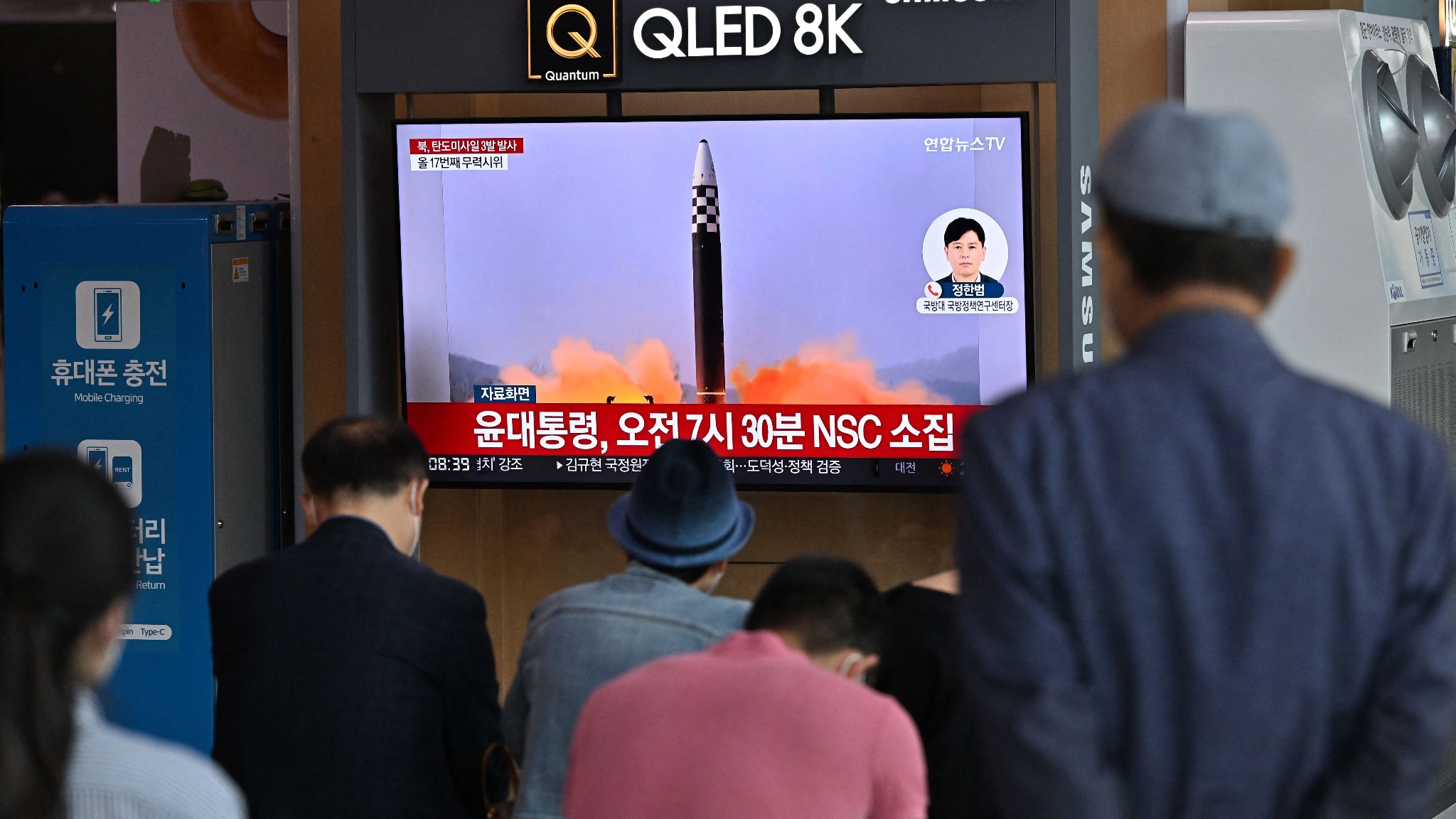North Korea launched
three ballistic missiles
towards the Japan-East Sea, including a possible intercontinental, in the aftermath of the departure of United States President Joe Biden,
on his first voyage to Asia
in support of security of closest allies, Seoul and Tokyo.
The South Korean Joint Staff Command reported having detected the launches from the Sunan area, just outside Pyongyang, all just before midnight in Italy.
This is the seventeenth test since the beginning of the year.
The first of the three carriers may have been an
intercontinental missile
: it flew about 360 km at a maximum altitude of 540 km.
The Southern military is considering whether it was a new model, the Hwasong-17.
The second, short-range (SRBM), reached an altitude of about 20 km and "vanished", in what could be a sign of failure.
Finally, the last one, always at short range, covered about 760 km with an apogee of 60 km.
The launches matured after fears that the North could, during Biden's presence in the Far East, conduct an
ICBM or nuclear test
to strengthen military grip and national unity in
the country struggling with the first. Covid-19 outbreak
.
"The launch of intercontinental ballistic missiles by the North is yet another case of
breaking the moratorium
promised by Pyongyang to the international community, as well as the
violation of UN Security Council resolutions
and a
serious provocative act
", observed the Command in a note.
"Our army is monitoring related movements against the possibility of further provocation by the North, maintaining a position of full readiness to ensure a landslide victory at all times," he added.
Seoul: "South Korea-US ready to deterrence"
"The continuing provocations of North Korea can only lead to
stronger and faster
combined South Korea-US deterrence and can only deepen North Korea's international isolation," the South Korean government said.
In a statement issued at the end of an emergency meeting of the National Security Council, the Office of South Korean President
Yoon Suk-yeol
strongly condemned the ballistic missile tests defined as "a
serious provocation that violates the resolutions of the Security Council. United Nations
,
raises tensions
on the Korean peninsula and in Northeast Asia and
threatens international peace
".
The North American launch matured just days after Yoon and US President Joe Biden held a
summit in Seoul
last weekend.
Both Seoul and Washington said North Korea could have launched an ICBM or test a nuclear weapon during (or shortly after) the US president's visit to the region.
In this context,
Biden reiterated the commitment to "extended deterrence"
of the United States to protect its ally in its meeting with Yoon, "utilizing
the full range of US defense capabilities
, including
nuclear, conventional and missile defense capabilities
."
Yoon and Biden also agreed to consider
expanding combined military exercises
to deter North Korean threats, agreeing on the US commitment to deploy strategic military assets "in a timely and coordinated manner if necessary."
Ap
Joint US-South Korea exercises
Japan: "Clear provocation"
A harsh condemnation also comes from Japan.
The rocket launches, carried out just one day after the conclusion of the Quad summit held in Tokyo between the leaders of Japan, the United States, Australia and India, are
"blatant provocations
," Japan's Defense Minister Nobuo Kishi said, adding that Tokyo cannot tolerate North Korea to go ahead with "attempts to perfect its nuclear technology".
The Japanese Defense Minister also defined the actions of the Pyongyang regime as a threat to peace, stability and security of the region and the international community, and for this reason unacceptable, filing a formal protest through its diplomatic headquarters in Beijing.
During the Quad Summit in recent days, Japanese Prime Minister Fumio Kishida and Biden had hoped for greater cooperation from South Korea, condemning the development of nuclear missile technology in North Korea, and urging the hermit country to align itself with the resolutions of the Nations United.
United States: "Pyongyang engages in dialogue"
The United States also condemned North Korea for ballistic missile launches and called on Pyongyang to choose dialogue. "The United States condemns the multiple ballistic missile launches by the DPRK," a State Department spokesperson said. .
"We call on the DPRK to refrain from further provocations and to engage in sustained and substantive dialogue."

